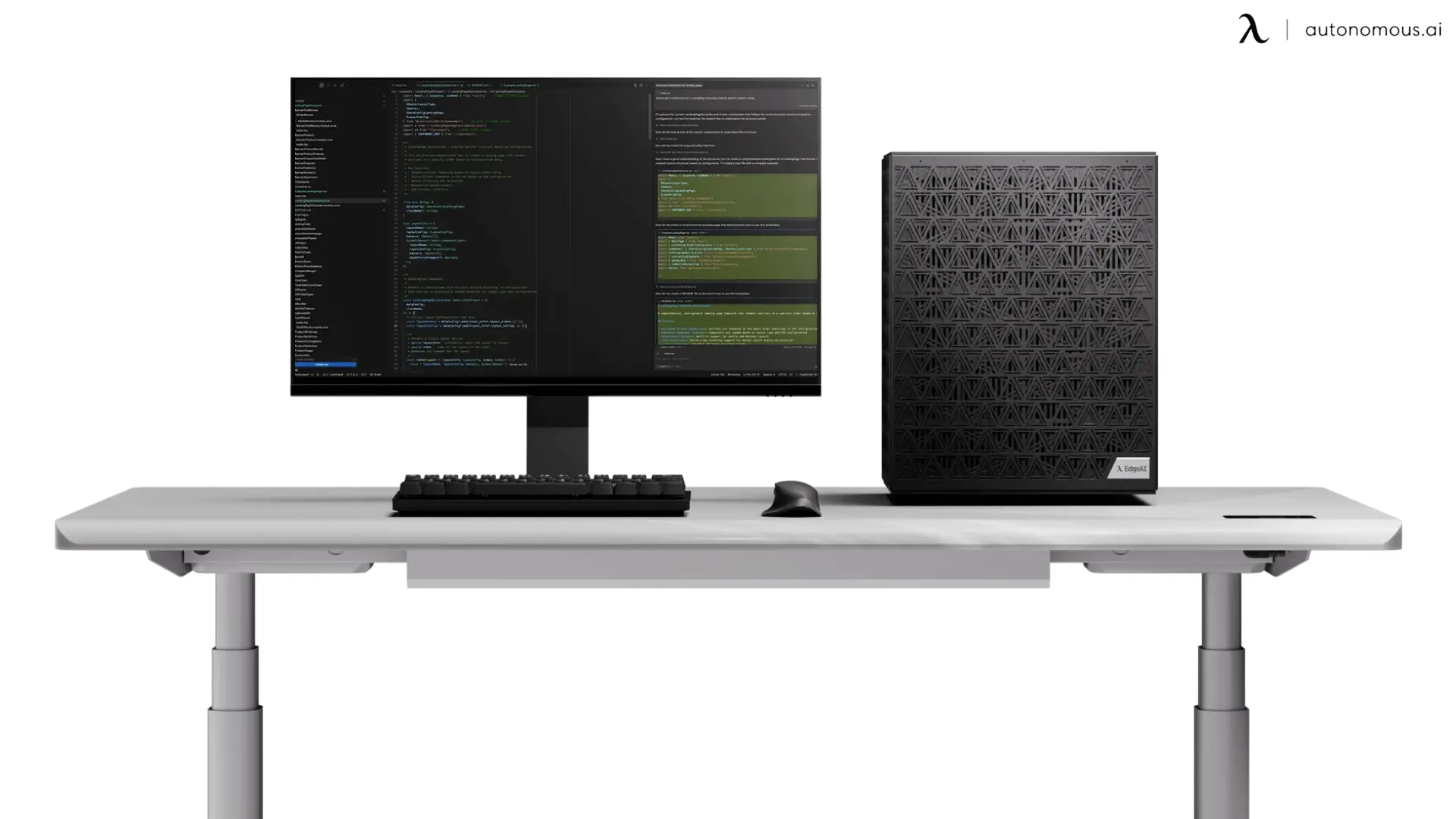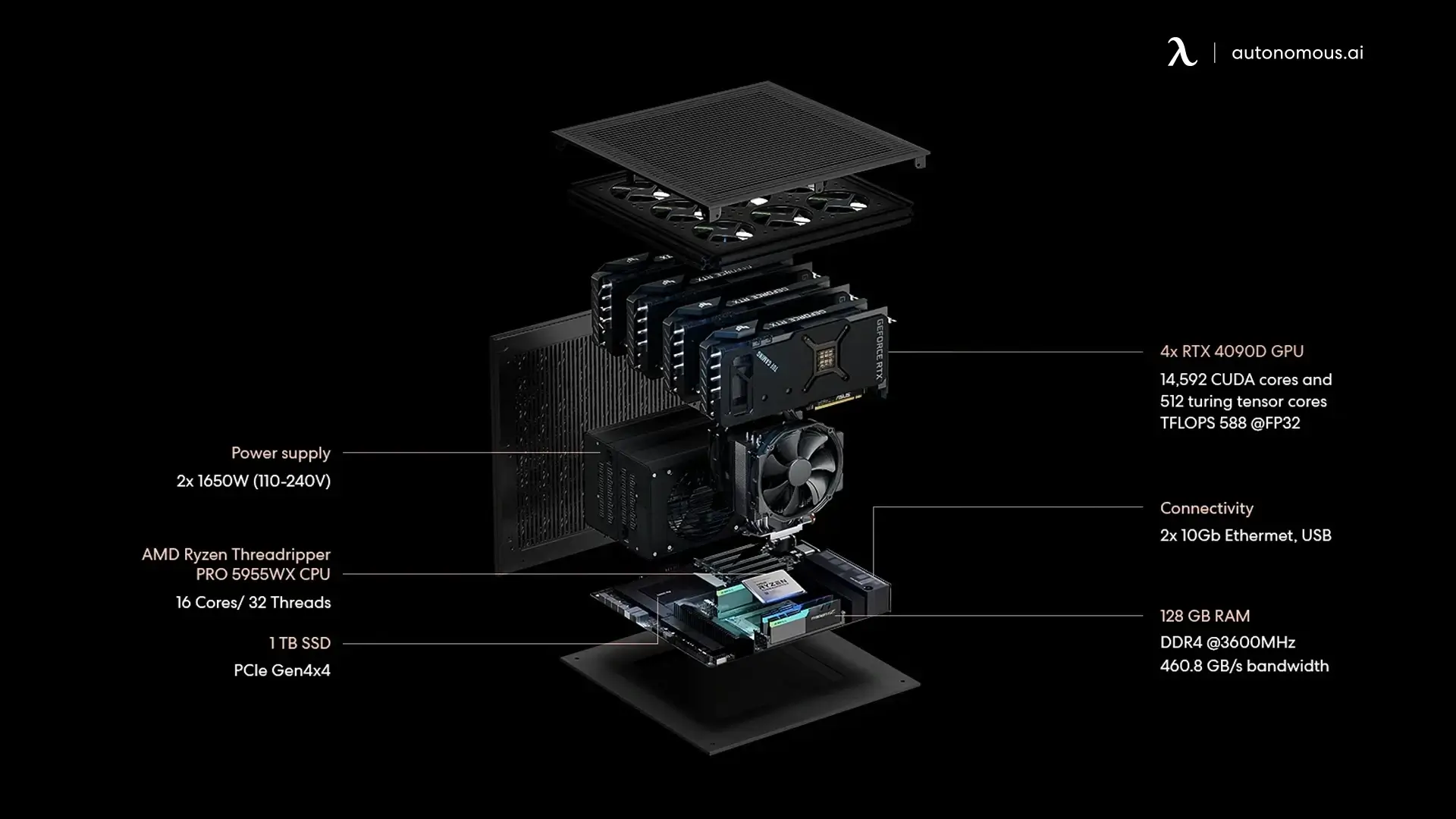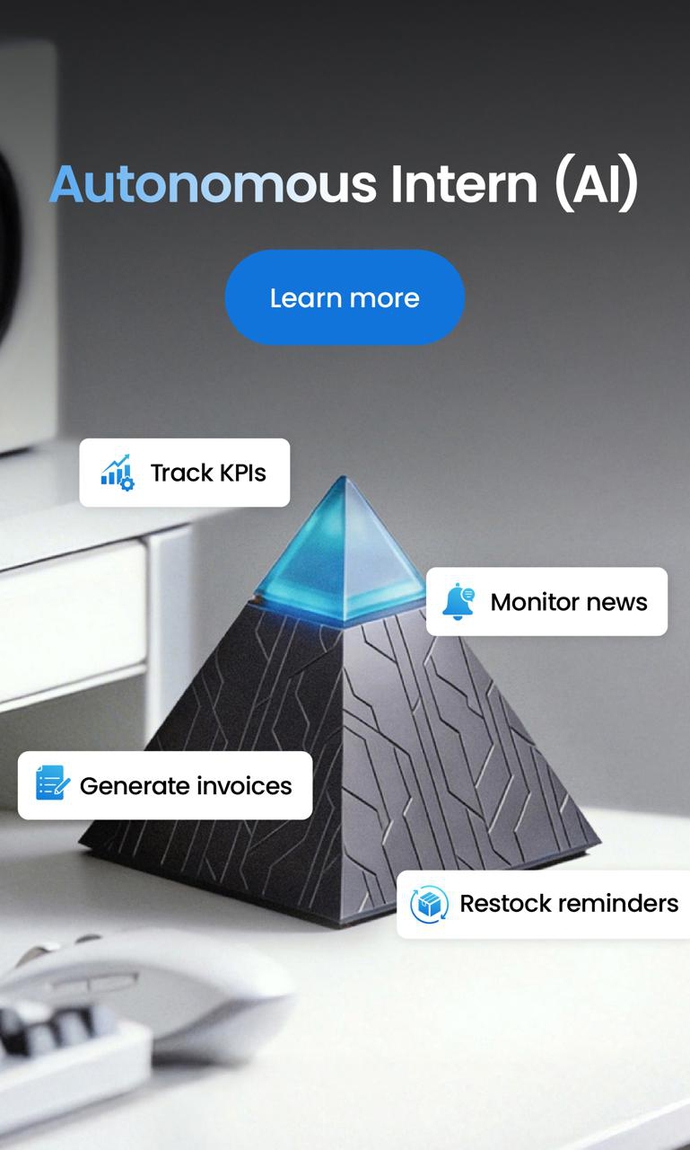
Edge AI Applications: Revolutionizing Industries with AI
Table of Contents
As artificial intelligence (AI) continues to grow, the need for real-time, localized data processing has led to the rise of Edge AI applications. Unlike traditional cloud-based systems that rely on centralized data centers, Edge AI processes data directly on devices near the data source. This eliminates the need for continuous communication with cloud servers, enabling faster decision-making, better privacy, and reduced bandwidth usage. This article explores the key applications of Edge AI, its benefits, challenges, and its growing role across various industries.
What is Edge AI?
Edge AI refers to the deployment of AI models and algorithms on local devices like sensors, cameras, wearables, and Internet of Things (IoT) devices. Unlike Cloud AI, which sends data to remote servers for processing, Edge AI allows the data to be processed locally on the device, offering real-time decision-making and minimizing latency.
The primary benefit of Edge AI is that it reduces reliance on cloud infrastructure, ensuring faster data processing, enhanced security, and improved privacy by keeping sensitive data on the device. Whether it’s in autonomous vehicles, healthcare, or smart cities, Edge AI is transforming how industries operate by enabling real-time intelligence at the point of data generation.
Edge AI Applications in Key Industries
1. Healthcare
Edge AI in Healthcare allows for real-time monitoring of patients' health using wearables and sensors. These devices can analyze data such as heart rate, blood pressure, and glucose levels, and immediately send alerts to healthcare providers if any anomalies are detected. Edge AI applications in healthcare also allow for AI-driven diagnostics, offering instant analysis of medical images or patient records.
Example: Wearable devices like smartwatches can detect abnormal heart rhythms and alert medical professionals immediately, reducing response time and improving patient care.
2. Automotive and Transportation
Autonomous vehicles heavily rely on Edge AI for processing sensor data in real time. Cameras, radar, and LiDAR systems on these vehicles collect massive amounts of data, which Edge AI analyzes locally to make immediate decisions related to navigation, obstacle detection, and collision avoidance.
Example: In self-driving cars, Edge AI helps the car make decisions in real time, such as when to stop, accelerate, or change lanes based on the environment around it.
3. Manufacturing and Industry 4.0
In the manufacturing industry, Edge AI applications focus on predictive maintenance, real-time monitoring of equipment, and optimization of production lines. IoT sensors on machinery can detect early signs of wear and tear, predicting when maintenance is needed to avoid costly downtime.
Example: Edge AI devices on factory floors can analyze the health of machines, predict failures, and automatically alert maintenance teams, ensuring continuous operation and minimizing downtime.
4. Retail
Edge AI is transforming the retail sector by enabling smart inventory management, customer behavior analysis, and personalized shopping experiences. Edge AI devices can monitor stock levels in real time, analyze consumer purchasing patterns, and even recommend personalized offers to customers.
Example: In retail stores, Edge AI can be used for real-time shelf scanning to ensure products are stocked correctly, reducing waste and optimizing inventory.
5. Smart Cities and Infrastructure
Edge AI applications are crucial for smart city development. These include real-time traffic management, surveillance, and energy efficiency. For instance, traffic cameras and sensors powered by Edge AI can manage traffic flow in real time, reducing congestion and improving the overall flow of the city.
Example: In smart cities, Edge AI can dynamically adjust traffic signals based on real-time traffic conditions, ensuring smooth traffic flow and reducing congestion.
6. Agriculture
Edge AI in agriculture focuses on precision farming by analyzing soil conditions, weather patterns, and crop health in real time. Edge AI devices such as drones and sensors can provide immediate feedback to farmers, enabling them to make data-driven decisions about watering, pest control, and harvesting.
Example: Edge AI can be used in smart irrigation systems that monitor soil moisture levels and adjust watering schedules in real time, saving water and improving crop yields.
7. Security and Surveillance
Edge AI applications in security and surveillance enable real-time video analytics. AI-powered cameras can detect suspicious activities, recognize faces, and trigger alarms instantly without relying on the cloud for processing.
Example: In high-security areas, Edge AI-powered surveillance cameras can identify unauthorized individuals and alert security personnel immediately, ensuring a faster response time.

Benefits of Edge AI Applications
- Real-time Decision Making
Edge AI enables devices to process data locally, which significantly reduces latency. This allows businesses and systems to make immediate decisions without relying on remote cloud servers.
- Cost Efficiency
By processing data locally, Edge AI reduces the need for continuous cloud data transfer and storage, which can incur significant costs. The upfront investment in Edge AI devices often pays off by saving on cloud service fees in the long term.
- Improved Privacy and Security
Edge AI applications ensure that sensitive data remains local, which minimizes the risk of data breaches or unauthorized access. This is particularly important in sectors like healthcare and finance, where data privacy is a top priority.
- Scalability
Edge AI devices can be scaled easily across various industries and locations. As businesses expand, they can deploy more Edge AI devices without relying on cloud infrastructure for additional resources.
.webp)
Challenges of Edge AI Applications
- Hardware Constraints
Edge AI devices often have limited processing power and memory compared to cloud-based systems, which may restrict their ability to handle complex tasks.
- Integration Complexity:
Integrating Edge AI systems with existing cloud-based infrastructure can be challenging, especially for businesses that rely on cloud platforms for large-scale data analysis.
- Data Synchronization:
Maintaining synchronization between Edge AI devices and cloud systems can be difficult, especially when dealing with large datasets and real-time processing. The challenge often arises due to the complexity of integrating local processing with cloud infrastructure. While Edge AI excels in real-time decision-making, Cloud AI provides greater computational capacity. Understanding the differences between Edge AI and Cloud AI can help businesses make informed decisions on the most effective approach based on their specific needs.
EdgeAI Computer: Empowering Local AI Processing
The EdgeAI Computer takes Edge AI applications to the next level by combining high-performance GPUs with local data processing. Powered by NVIDIA RTX 4090D GPUs, the EdgeAI Computer is designed to handle demanding AI tasks, from model training to real-time decision-making, without relying on cloud infrastructure.
Key features of the EdgeAI Computer include:
- Unmatched AI Performance: With over a petaflop of AI performance, the EdgeAI Computer provides powerful processing capabilities, enabling businesses to run large-scale AI models efficiently.
- Scalability: The EdgeAI Computer can be configured with up to 8 GPUs, allowing businesses to scale their AI workloads as needed, whether for a small team or a large enterprise.
- 100% Privacy: With all AI workloads processed locally, businesses benefit from enhanced data privacy. No data is sent to the cloud, reducing the risk of data breaches and ensuring full control over sensitive information.
- Cost-Efficiency: The EdgeAI Computer offers significant cost savings compared to traditional cloud-based solutions, providing up to 96% savings. With no ongoing cloud fees, businesses can invest in high-performance AI processing while keeping costs low.
- Durability and Reliability: Built for continuous AI workloads, the EdgeAI Computer is designed for 24/7 operation, making it ideal for businesses that require reliable, high-performance computing.
By offering AI-powered local processing, the EdgeAI Computer ensures businesses can execute demanding tasks like real-time video analysis, predictive health monitoring, and autonomous decision-making without relying on cloud infrastructure.
With the EdgeAI Computer, you can harness the full power of Edge AI for a more secure, efficient, and cost-effective AI computing experience. To better understand AI PCs, explore what they are and how they are transforming computing. Additionally, discover how an AI PC assistant can help enhance productivity by managing tasks more efficiently.

FAQs
What is Edge AI?
Edge AI refers to the use of artificial intelligence (AI) on devices located at the "edge" of a network, meaning data is processed locally on the device itself rather than being sent to the cloud for analysis. This enables faster decision-making, reduced latency, and improved privacy.
How does Edge AI improve real-time decision-making?
Edge AI improves real-time decision-making by processing data directly on the device, ensuring immediate insights without needing to wait for cloud-based processing. For example, in autonomous vehicles, Edge AI helps make rapid decisions for navigation and obstacle detection without delays caused by transmitting data to the cloud.
Why is Edge AI important for privacy?
Edge AI enhances privacy by keeping data processing local to the device, meaning sensitive information never needs to leave the device or network. This reduces the risk of exposing personal data to third-party servers and helps businesses comply with privacy regulations.
What are some industries benefiting from Edge AI?
Edge AI is revolutionizing industries such as healthcare, manufacturing, and automotive. In healthcare, wearable devices monitor health metrics in real time, while in manufacturing, sensors predict equipment failure before it happens. Autonomous vehicles use Edge AI to process sensor data locally for immediate decision-making.
What types of devices use Edge AI?
Devices using Edge AI include smart cameras, wearables like fitness trackers and health monitors, autonomous vehicles, and IoT sensors in factories. These devices rely on local data processing to enhance performance, improve user experiences, and enable real-time feedback.
Conclusion
Edge AI applications are revolutionizing industries by offering faster, more secure, and cost-effective solutions for real-time data processing. From healthcare to manufacturing, retail to agriculture, Edge AI is transforming the way businesses operate and make decisions. As the technology advances, we can expect Edge AI to continue driving innovation, offering businesses greater efficiency, enhanced privacy, and reduced operational costs.
Spread the word
.svg)







